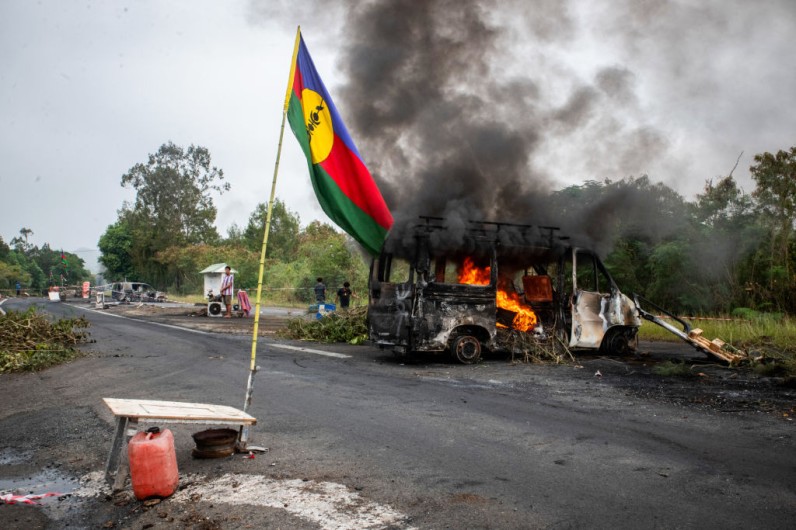
The foreign ministries of Australia and New Zealand announced Tuesday (May 21) that they were sending air assets to New Caledonia, a territory held by France, to evacuate their nationals from the riots across the island.
The Associated Press (AP) reported that at least six people have died and hundreds more injured after violence erupted in the island last week following controversial electoral reforms passed by the French government in Paris. Some 270 rioters were also arrested as of Tuesday after a 12-hour curfew from 18:00 to 06:00 took effect.
Australian public broadcaster SBS reported that Foreign Minister Penny Wong announced that her office "received clearance" to evacuate Australians in the island, which is considered by France to be part of its overseas territories. As of press time, some 300 Australians in New Caledonia have registered with the Department of Foreign Affairs and Trade (DFAT) and expressed intent to return home.
We’ve received clearance for two Australian Government assisted-departure flights today for Australian and other tourists to depart New Caledonia.@dfat is contacting registered Australians. Passengers are being prioritised based on need.
— Senator Penny Wong (@SenatorWong) May 21, 2024
We continue to work on further flights.
On the other hand, RNZ reported that New Zealand Deputy Prime Minister Winston Peters confirmed the evacuation flights for New Zealanders in the island, saying that the first would carry around 50 passengers with the most pressing needs. Peters, who also holds the foreign ministry portfolio in Christopher Luxon's government, also stressed that his country's evacuation procedures were done "[i]n cooperation with France and Australia."
Riots Focused on Independence, Nickel Mining
According to the AP, New Caledonia has seen decades of attempts to free itself from France's yoke, especially within the indigenous Kanak people. This caused tensions between them and the descendants of French colonizers seeking to keep the island a part of France.
The unrest happened last week after the National Assembly, the French parliament in Paris, debated on amending the French constitution, specifically on provisions regarding New Caledonian voter lists. French lawmakers approved a bill that would allow residents who have lived on the island for at least 10 years to vote in provincial elections.
However, opponents to the bill feared that it would benefit pro-French politicians in New Caledonia and further marginalize Kanaks, who have since endured segregation and discrimination on their own native lands.
The New York Times stressed that the tensions in both Europe and the Pacific sparked fears that the riots might trigger another civil war in New Caledonia.
Meanwhile, the Wall Street Journal reported that another issue that contributed to the riots in New Caledonia was French president Emmanual Macron's proposal to put the island and its significant nickel reserves at the center of the France's efforts to secure raw materials in order to push the country's clean energy transition forward and possibly compete against China in the production of electric vehicles (EVs).
The French territory currently holds 20% to 30% of the world's nickel reserves, but commodities economist Philippe Chalmin told French media outlet BFM that nickel is "the curse of New Caledonia" as the archipelago's development entirely depended on the mineral.
Euractiv reported that global nickel prices have fallen by over 45% in 2023 to around €19,000 ($20,622.50) per ton, while the cost of producing New Caledonian nickel was estimated at €22,000 ($23,878.69) per ton.







Join the Conversation